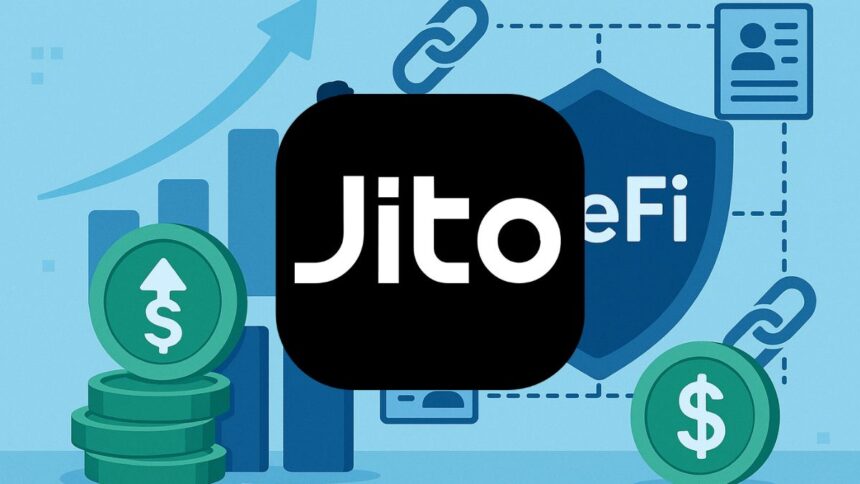In the rapidly evolving decentralized finance (DeFi) landscape, a notable shift towards community-led governance is taking shape on the Solana blockchain, led by Jito DAO. This innovative decentralized autonomous organization is redefining the management and evolution of blockchain protocols, providing a unique framework that empowers its members to collaboratively guide critical network infrastructure developments.
Jito DAO functions within the Solana ecosystem to facilitate decentralized governance over essential protocol decisions. Unlike traditional corporate structures, which centralize authority, Jito DAO allows JTO token holders to propose, discuss, and vote on upgrades, treasury allocations, and strategic initiatives directly on-chain. This model promotes collective ownership and accountability, aligning decision-making with the foundational principles of decentralization through the use of smart contracts and transparent voting mechanisms.
The core responsibilities of Jito DAO revolve around managing protocol revenue, approving ecosystem grants, and guiding strategies for value accrual. Specifically, it oversees fees generated by Jito’s Block Engine and the Block Assembly Marketplace (BAM), a programmable layer for transaction facilitation. The DAO also manages various treasury assets, encompassing native tokens and stablecoins, to support initiatives such as liquidity mining, developer incentives, and bolstering network security. This autonomy in financial management enables a focus on long-term growth while ensuring transparency with real-time dashboards and public reporting.
Structurally, Jito DAO features a modular design that includes specialized sub-DAOs, such as the Cryptoeconomics Sub-DAO (CSD). This entity focuses on optimizing tokenomic strategies, managing buyback allocations, staking subsidies, and fee-switch vaults. Such a hierarchical framework enhances scalability, delegating specific oversight responsibilities while maintaining centralized governance at the overall DAO level. Automated smart contracts streamline the revenue routing and fund distribution process, reducing administrative delays and reinforcing decentralized decision-making.
Revenue Routing Transactions (RRTs) form the technical backbone of Jito DAO, facilitating an automatic flow of 100% of protocol fees generated from Jito’s operations into the DAO treasury. With anticipated annual revenues estimated between $15 million and $22.8 million, the transaction details are fully verifiable on-chain, with treasury addresses publicly available to prevent any potential manipulation. To ensure diligence, the DAO undergoes annual audits and provides community-reviewed dashboards, guaranteeing transparency in fund flows and governance outcomes.
At the heart of Jito DAO’s operations is a robust on-chain governance process. Members are encouraged to draft Jito Improvement Proposals (JIPs), which must detail objectives, technical specifications, and justifications. For a proposal to reach formal voting, it needs to gain sufficient initial community support, which leaders gauge through temperature checks or straw polls. Once validated, the proposal enters a voting phase where JTO token holders cast their votes based on their staked tokens using a quadratic model designed to prevent dominance by large stakeholders. Successful proposals that meet the quorum and majority thresholds are subsequently queued for automatic execution through the DAO’s smart contracts.
The approval process is entirely automated, with immutable and audited smart contracts handling the execution. For example, if a proposal for funding a grant is approved, the smart contract automatically transfers the specified amount from the community treasury to the designated recipient’s wallet, ensuring transparency and removing human interference.
Treasury management within Jito DAO is facilitated through a programmable vault system, governed by parameters established during prior governance votes. This system allows for strategizing allocations of assets such as USDC, SOL, and JTO, with portions possibly allocated to dedicated sub-DAOs focused on yield generation strategies like liquidity provision and secure lending. All financial transactions remain transparent and verifiable on-chain, with continuous real-time oversight through community-maintained dashboards.
Jito DAO also integrates seamlessly with the Jito Network’s technical infrastructure, exerting direct control over critical economic levers such as fee structures for the Block Engine and parameters governing the BAM. This dynamic governance allows the DAO to actively adjust network incentives, focusing on aspects like validator participation and overall network security. By managing these parameters through on-chain votes, the DAO not only manages a treasury; it plays a vital role in steering the economic and operational dynamics of one of Solana’s essential infrastructure layers.
At the core of this governance ecosystem is the JTO token, which functions as the native governance asset of the Jito Foundation and the Jito DAO. It grants holders the ability to engage in proposal creation, voting, and influence the future trajectory of the Jito ecosystem. Beyond governance, JTO is designed to provide value through its alignment with the network’s revenue-generating mechanisms, allowing stakeholders to guide treasury management and key infrastructural development.
Evaluating JTO as an investment opportunity involves considering its foundational utility within a growing ecosystem. The token’s value is intricately linked to the adoption of Jito’s solutions within the broader Solana network and activities surrounding its decentralized governance structure. With potential investors needing to weigh risks such as market volatility and smart contract vulnerabilities, the prospects of JTO demand careful consideration.
In conclusion, Jito DAO represents a pivotal evolution in the governance of blockchain protocols. By entrusting control to its token holders, it has crafted a community-driven ecosystem that resonates with the foundational tenets of decentralization and transparency. The sophisticated governance mechanisms and seamless integration with the technical infrastructure of the Jito Network exemplify how DAOs can manage complex DeFi systems effectively, all while ensuring security and operational efficiency.






